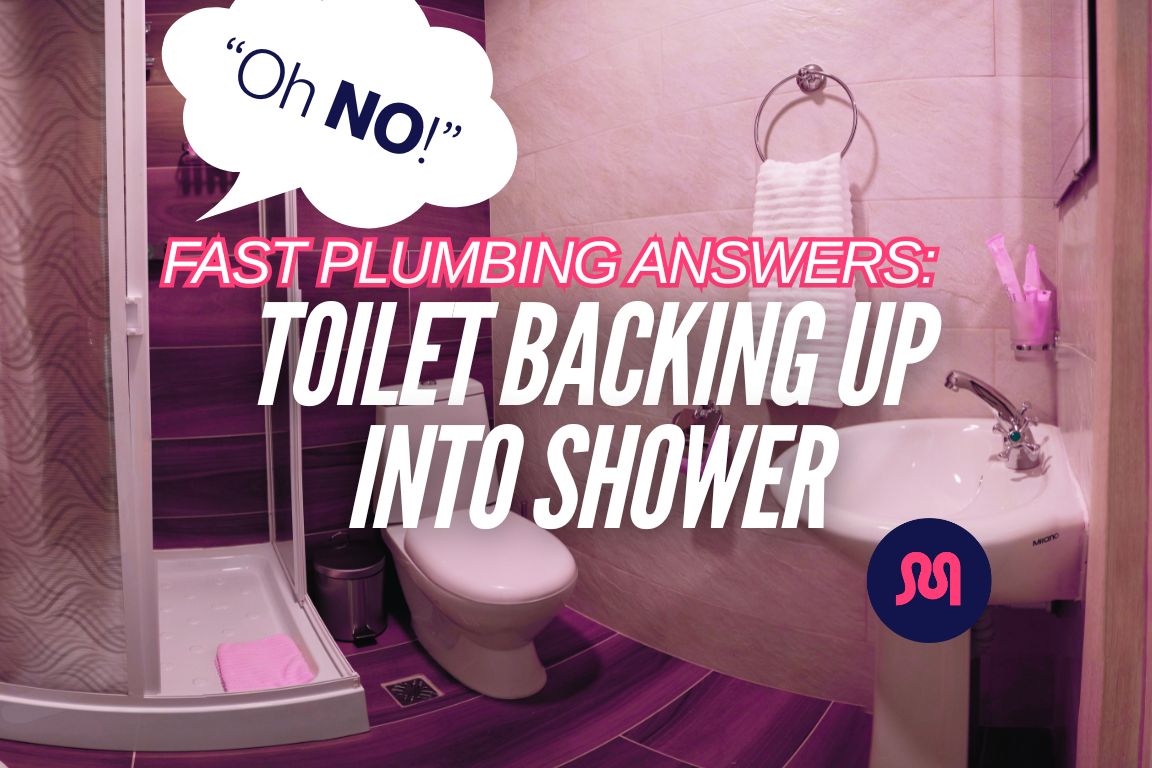Does Boiling Water Remove Lead? No.

table of contents
table of contents
Does boiling water remove lead? No. Absolutely not. In fact, hot water dissolves lead more quickly than cold water — so there’s likely more lead in your boiled water.
That’s just one of many myths about lead in your water supply we’ve encountered in the last few weeks.
In the wake of Dallas homeowners receiving a letter form Dallas Water Utilities about potential lead pipes in public and private water supply lines, our plumbing customers called us with dozens of questions about lead in drinking water.
We’re tackling the most common questions about lead in tap water, and telling you whether they’re fact or pure fiction.
- Suspect lead in your drinking water? It’s coming from the city’s water supply line, the pipes in your home, or the water supply line connecting your home to the city or well.
- The health effects of lead in tap water are severe. Adults with lead poisoning experience hypertension and kidney damage. Children develop anemia, learning disorders, and hearing problems. Pregnant women may experience premature birth.
- Most cities haven’t fully tested their water supply lines. The EPA estimates over 9.2 million service lines containing lead are active and in use.
- Well water is not immune to lead contamination. Older wells contain lead and leaded-brass elements in their packing structure.
- Over 3,000 American regions contain lead pipes. A recent Reuters report finds lead pipes in all 50 states, with high concentrations in Illinois, Ohio, and New York.
{{lead-water-test="/services/lead-water-test"}}
Why Is There Lead in My Tap Water?
Finding lead in your home’s water supply is a major cause for concern. If you suspect the presence of lead in your tap water, it’s coming from one of 4 places:
- Public water supply. Many cities have not fully tested their public supply lines for lead in accordance with recent Environmental Protection Agency (EPA) standards.
- Your home’s water pipes. If your city’s water supply is free of lead and fully tested (many aren’t), the culprit could be existing lead pipes within your home.
- Your home’s water supply line. There may be lead present in the pipes that connect your home to its water supply source — either the city or well water.
- Your faucets and fixtures. While less likely, there is some chance of lead contamination through outdated faucets and fixtures in older homes.
Why Is Lead In Drinking Water So Dangerous?
What are the dangers of lead in drinking water, anyway? Prolonged exposure to lead through ingestion causes a myriad of severe health issues.
Here are 14 hazards of lead in drinking water for adults, children and pregnant women. These effects are reported by the EPA, National Institute of Health (NIH) and other leading health authorities:
Health effects of lead in drinking water: adults
Adult ingestion of lead in drinking water can lead to 5 major health concerns:
- Decreased kidney function. Lead exposure over moderate to long periods of time reduces kidney function in adults.
- Reproductive damage. Prolonged exposure to lead directly affects fertility.
- Increased blood pressure. Lead is linked to increased blood pressure.
- Hypertension. Long-term spikes in blood pressure due to lead consumption has shown to increase hypertension in adults.
- Death.
Health effects of lead in drinking water: children
Children exposed to lead have an increased risk of 6 health concerns:
- Lower IQ and mental development. Specifically, the NIH reports a 20% increase in hyperactivity and lack of focus in children exposed to lead.
- Stunted physical growth. Exposure to lead drives delayed and stunted growth.
- Anemia. Lead poisoning and ingestion can lead to anemia in children.
- Hearing problems. Lead poisoning can lead to auditory damage and hearing loss.
- ADHD. The NIH links lead ingestion with 66% increased odds of an ADHD diagnosis.
- Death.
Health effects of lead in drinking water: pregnant women
Tap water containing lead is extremely harmful to pregnant women:
- Premature birth. Lead can enter the placenta and trigger premature birth.
- Low birth weight. Lead exposure causes low birth weight in fetuses.
- Still birth. In rare cases, advanced lead exposure during pregnancy can cause still birth.
Busting 6 Myths About Lead in Drinking Water
Here are the top 6 myths our plumbing experts regularly encounter about lead in drinking water, and the truth about each one.
Myth #1: Boiling water reduces lead.
Verdict: False
The Truth: Hot water actually dissolves lead faster than cold water. In reality, boiling water usually increases the amount of lead present, not the opposite.
If you suspect the presence of lead in your water supply, do not boil your water — especially before giving it to children, pregnant or nursing women.
Myth #2: The city says my drinking water is safe, so there’s no lead.
Verdict: Potentially false
The Truth: Most cities haven’t fully tested their water supply lines for lead pipes. For example, the City of Dallas has not cleared 36% of public water lines for lead.
Dallas can legally state there is no lead in its drinking water due to its water treatment process, which includes orthophosphate use and corrosion control strategies. However, this statement does not extend to private homeowner supply lines.
Over 500,000 private water supply lines in Dallas remain untested for lead materials. If the problem is “on your side of the fence”, it’s up to you to remediate it.
Did you get this letter about lead pipes from Dallas Water Utilities?
Myth #3: I use well water, so I have no lead risk.
Verdict: False
The Truth: There are shockingly little to no standards for lead testing in well water in most parts of the United States. Over 15% of Americans rely on well water for home use — private wells over 20 years old often contain well sealing “packers” that have lead or leaded-brass parts.
Myth #4: My refrigerator filter eliminates lead from water.
Verdict: False
The Truth: Almost all fridge filters are not rated to eliminate lead from water. They also aren’t equipped to get rid of toxic heavy metals from the water supply.
Myth #5: Water softeners remove lead from tap water.
Verdict: False
The Truth: Water softeners are not rated to remove lead or heavy metals from tap water. They are effective at removing calcium from drinking water through ion exchange.
Water softeners are only effective at home lead remediation when paired with a whole house water filtration system.
{{whole-home-water-filtration="/services/whole-home-water-filtration"}}
Myth #6: There is no lead in the water where I live.
Verdict: Potentially false
The Truth: Flint, Michigan became the “poster child for lead in drinking water” in the early 21st century. But did you know that Reuters recently located over 3,000 American regions with worse lead poisoning rates than Flint?
The National Resources Defense Council (NRDC) reports lead pipes currently exist in all 50 U.S. states, with high concentrations in 7 states:
- Illinois
- Ohio
- New York
- New Jersey
- Wisconsin
- Pennsylvania
- Florida
The NRDC map shows concentrations of lead pipes present in major metropolitan areas, including Cleveland, Chicago, New York City, Detroit and Milwaukee.
Local lead pipe info for Dallas residents: The NRDC study reveals lead pipes in Dallas, Irving, University Park and Grand Prairie.
What to Do If You Suspect Lead in Your Water
The first thing to do if you suspect lead in your home’s tap water is to call 311 in most locations. Many cities, like Dallas, offer free lead water testing to their residents.
If your area does not offer this service, a professional plumbing service near you is able to test your pipes and water supply for lead. Our expert plumbers conduct regular lead detection tests in the Dallas-Fort Worth Metroplex.
If you find lead in your pipes, there are 2 primary forms of remediation:
- Pipe replacement: If lead pipes exist in part of your home (or the supply line between you and the city), repiping is an option. However, whole home pipe replacement isn’t cost-effective — larger homes can easily spend $40,000+.
- Whole house water filtration systems: Eliminate lead with whole home water filtration system installation. This service removes lead from your drinking water and often costs 85%+ less than whole home repiping.
Lead pipes in DFW? We’ll find the best solution for you — it's time to call Mother.
{{lead-water-test="/services/lead-water-test"}}
Common Q’s about Water Testing Services
Do cast iron pipes have lead?
No, cast iron pipes themselves do not contain lead. However, lead was often used in the joints of older cast iron pipes, especially riser joints. Lead solder was also used in older buried cast iron lines. Any pipe containing lead materials must be replaced immediately.
How long does a whole house water filtration system last?
Most whole house water filter systems should last a minimum of 10 years. Higher quality filtration systems offer longer lifespans of 15-25 years with proper inspection and routine maintenance. Your filter and water quality impact product lifespan.
What does a whole house water filter cost in Texas?
The average cost to purchase and install a whole house water filtration system in Texas is $5,000-$6,000. Whole home water filtration costs 80-85% less than complete pipe replacement.




